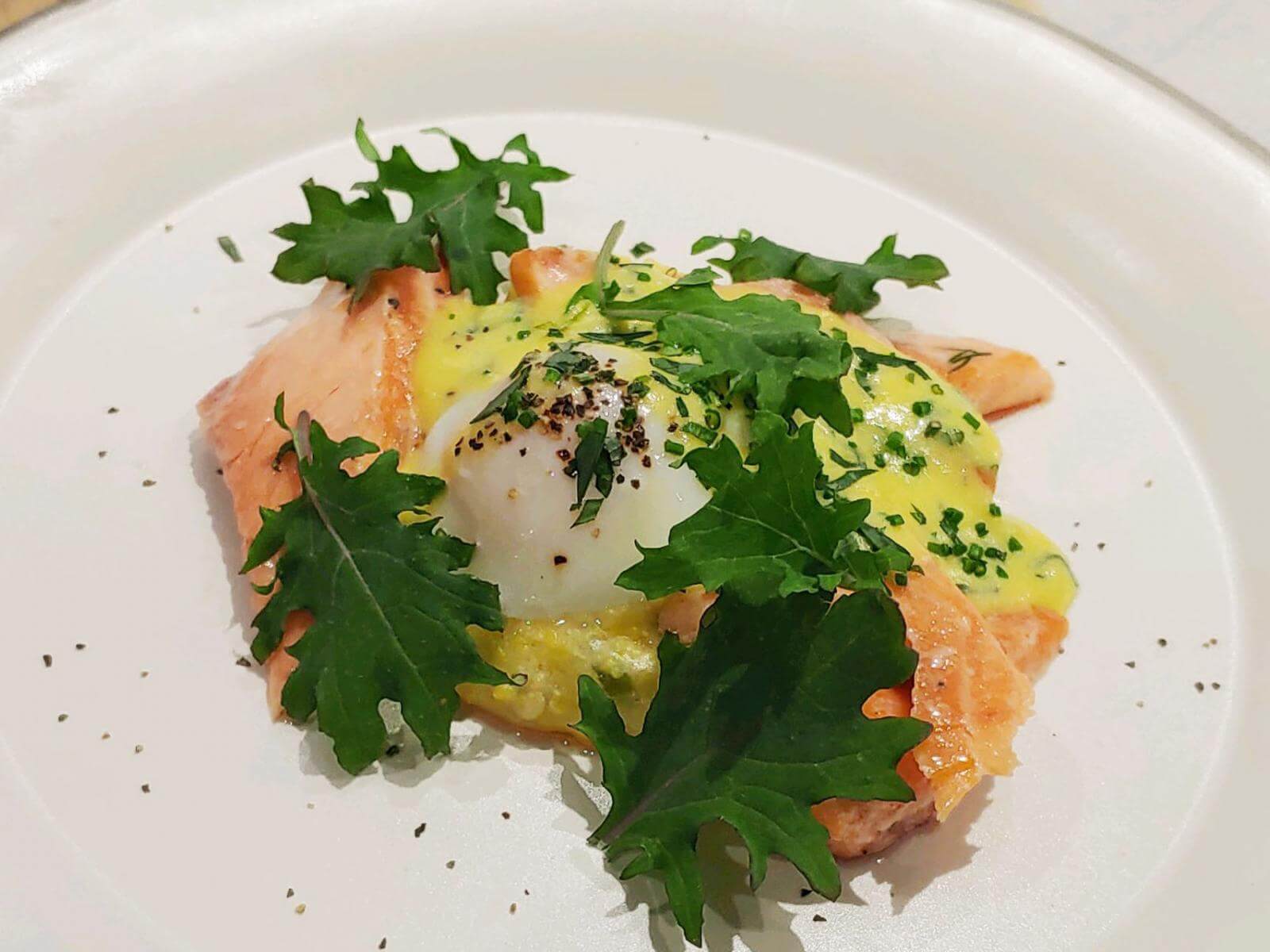
Sous Vide Poached Colorado Trout
Recipe adapted from How to Cook Everything by Mark Bittman
Makes: 4 Servings
Ingredients
1 pound trout filets
1 lemon, peel only
1 sprig dill
2 teaspoons extra virgin olive oil
Method
1. Check trout filets for any scales or small bones.
2. Season lightly with salt and pepper.
3. Place trout in the sous vide pouch with the lemon peel and dill.
4. Add pouch to the sous vide bath at 147 degrees for 20-30 minutes depending on thickness.
5. Remove pouch from the bath and allow to rest briefly. Remove the fish from the pouch while still warm. Flake gently and serve.
Sous Vide Poached Eggs
Recipe adapted from How to Cook Everything by Mark Bittman
Makes: 6 Servings
Ingredients
6 large eggs
2 teaspoons flake salt, to serve
2 cracked black pepper, for serving
Method
1. Preheat built-In sous vide bath to 147 (or desired temp for your perfect egg). Place eggs in the sous vide bath and cook for about one hour. The eggs can remain in the bath for up to 3 hours maximum.
2. Crack eggs one at a time into a bowl and carefully move to another bowl with a spoon discarding of the excess watery white that remains in the first bowl. Serve immediately.
3. Alternately eggs can be chilled in the shell. Chill them in ice water or cold running water and reserve for later use. Eggs can kept refrigerated for up to a week and reheated in the sous vide bath at 140 degrees for 30 minutes prior to serving.
Tips:
147 degrees will produce a poached egg with a very soft white and runny yolk. If you prefer a harder, more thoroughly cooked egg, you can experiment going up a few degrees each time until you find the temperature that is perfect for you.
Polenta
Recipe adapted from How to Cook Everything by Mark Bittman
Makes: 4 Servings
Time: 20 minutes
Ingredients
1 cup medium or coarse cornmeal
½ cup milk (preferably whole)
½ cup grated Parmesan cheese
2 tablespoons butter or olive oil, or more
Salt and pepper
Method
1. Put the polenta in a large pot with 1 cup water and whisk to form a smooth slurry. Whisk in the milk and a large pinch salt and set the pot over medium-high heat. Bring to a boil, then lower the heat to medium and cook, whisking frequently and adding more water a little at a time to prevent lumps and to keep the mixture some-what soupy. Expect to add another 2 ½ to 3 ½ cups water before the polenta is ready.
2. The polenta will be tender in 15 to 30 minutes, depending on the grind. It will be thick and creamy, with just a little grittiness, and the mixture will pull away from the side of the pot when you stir. For soft polenta, you want a consistency about as thick as sour cream. When the polenta is done stir in the Parmesan and butter, taste and adjust the seasoning.


